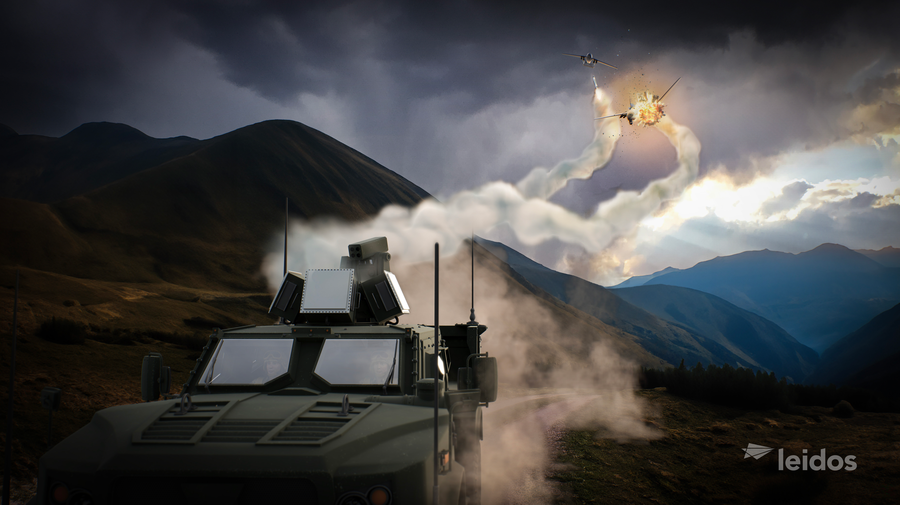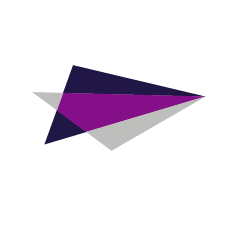Leidos reintroduces C-UAS system with new name, updated technology
RESTON, Va. (Oct. 14, 2024) – Leidos, a Fortune 500® innovation leader, announced AirShield™, the new name for its latest solution for counter-unmanned aerial system (C-UAS) missions. The next step in the evolution of the system’s architecture will include expanded capabilities featuring both kinetic and non-kinetic effectors. The reintroduction comes amid the company’s desire to highlight how its successfully tested technology stands out from other options already on the market.
AirShield is engineered to deliver robust air defense while on the move, providing capabilities among the most advanced in the industry. The system employs advanced threat assessment along with multiple mechanisms to provide a comprehensive air defense solution against unmanned aerial vehicles (UAVs), particularly in dynamic and fluid operational environments.
“The threat from unmanned systems is constantly growing and evolving. AirShield is poised to integrate into existing systems and adapt as technology advances,” said Derrick Birdsell, AirShield program manager for Leidos. “We’re excited to be able to offer our AirShield architecture’s ability to integrate additional effectors for a variety of customers. It really highlights the versatility our team can bring to advance this technology into an adaptable system as the threat changes.”
AirShield is a multi-layered system that can operate autonomously in a single location or on the move to provide protection from UAS threats. It’s designed to excel in detection, tracking, classification, identification, prioritization, assessment, and neutralization of threats, providing a kill-chain solution that can seamlessly integrate into existing air defenses.
See an in-depth breakdown of how AirShield works
“Our Co-axial Unmanned Guided Autonomous Rotorcraft (CUGAR) effector, showcased last year at the MFIX demo, is our current effector. We plan to augment it with the APKWS [Advanced Precision Kill Weapon System] missile system to boost its effectiveness. Additionally, we have the ability to easily integrate with other effectors including high-energy lasers, turret-mounted guns, and even high-powered microwave systems,” added Birdsell.
As a leader in Trusted Mission AI, Leidos is also integrating its software innovations into the hardware development of AirShield. The system employs AI for weapon-to-threat pairing, previously managed by a rule-based algorithm. Ongoing research explores how further AI and Machine Learning enhancements can be integrated into the system.
The company has also placed a high emphasis on cyber resiliency while developing the AirShield system. Future evolutions will integrate both offensive and defensive cyber strategies, offensively targeting and neutralizing threats while defensively combating any cyber intrusions and attacks.
The original C-UAS work for Leidos began under the Defense Advanced Research Projects Agency (DARPA) Mobile Force Protection (MFP) program. Following last year’s successful demonstration, the program transitioned to the U.S. Army Combat Capabilities Development Command (DEVCOM) Aviation and Missile Center.
Multiple prototypes of AirShield have been built and demonstrated in live fire exercises, with plans for fielding by U.S. Southern Command in 2025. Additionally, Leidos is building a production line that will begin delivering systems to future customers as early as 2025.
About Leidos
Leidos is a Fortune 500® innovation company rapidly addressing the world’s most vexing challenges in national security and health. The company's global workforce of 48,000 collaborates to create smarter technology solutions for customers in heavily regulated industries. Headquartered in Reston, Virginia, Leidos reported annual revenues of approximately $15.4 billion for the fiscal year ended December 29, 2023. For more information, visit www.leidos.com.
###
Certain statements in this announcement constitute “forward-looking statements” within the meaning of the rules and regulations of the U.S. Securities and Exchange Commission (SEC). These statements are based on management’s current beliefs and expectations and are subject to significant risks and uncertainties. These statements are not guarantees of future results or occurrences. A number of factors could cause our actual results, performance, achievements, or industry results to be different from the results, performance, or achievements expressed or implied by such forward-looking statements. These factors include, but are not limited to, the “Risk Factors” set forth in Leidos’ Annual Report on Form 10-K for the fiscal year ended December 29, 2023, and other such filings that Leidos makes with the SEC from time to time. Readers are cautioned not to place undue reliance on such forward-looking statements, which speak only as of the date hereof. Leidos does not undertake to update forward-looking statements to reflect the impact of circumstances or events that arise after the date the forward-looking statements were made.




